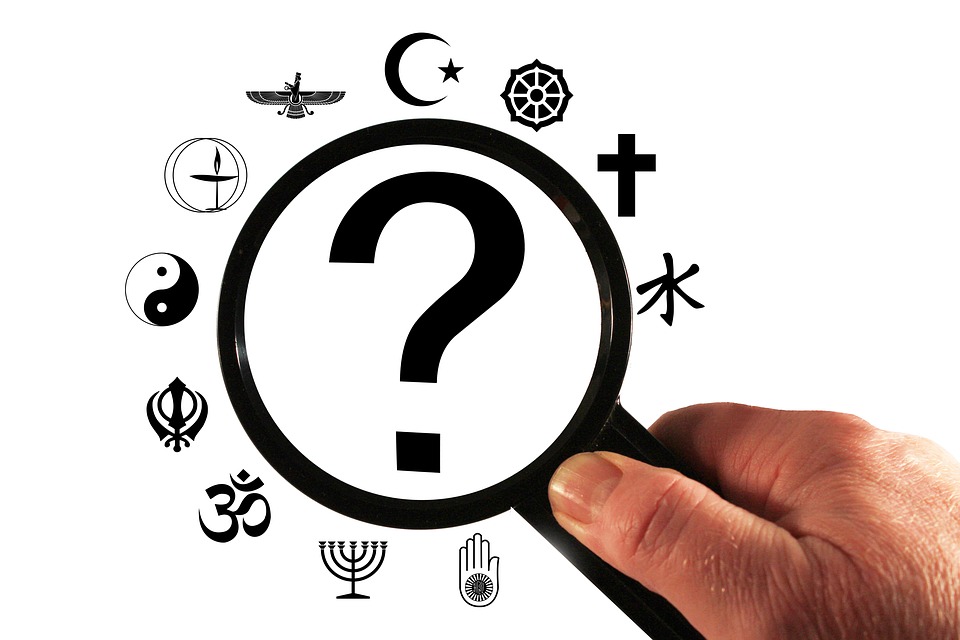“Religion” in relation to ritual practice became an item in an inventory of cultural topics that could be presented either ethnographically in terms of a particular people, as in Eden or Cieza with reference to the “Indies,” or in a cross-cultural encyclopedia under the heading of “ritual” or “religion.” — (Jonathan Z Smith, 1998 : 270)
Officially, Indonesia only recognizes six religions. In fact, long before that the term ‘religion’ was very diverse and full of dynamics for scholars of the classical century. There have been numerous shifts in the term ‘religion’ from global universality to local identities. At that time scholars were often motivated by a desire to return to what they saw as traditional values.
As so far a history in the past decades, religion does not have a special category as something about God. Scholars divide it into two senses; Eden’s understands ‘religion’ as knowledge of God, while Cieza’s articulates ‘religion’ as a House of Worship. So that in stages, religion in the meaning of ‘religion’; worship of God is not something original. The term of ‘religion’ has had a long history and much debate among scholars going into the 16th century. So even from beginning we did not find the meaning of ‘religion’ as it is now understood.
In Latin Roman and Christian terms, ‘religion’ is often defined as ‘religiousness’ (adjective) for piety and ‘religouse’ (adverbial) which refers to the cult of ritual worship. Then in the expansion of the 5th century, Christianity used the term ‘religion’ as an individual life bound to monotheism.
After which the word ‘religion’ refers to the life of the church; like a monk. This term is used to distinguish from non-Christian groups. Which 2 centuries later, Samuel Jhonson termed ‘religion’ as virtue, as founded upon reverence of God, and expectations of future rewards and punishments. At that time, scholarly debates centered more on the definition of religion, whether ‘religion’ is interpreted as a universal concept or whether ‘religion’ is nothing more than cross-cultural. (Jonathan Z Smith, 1998:270-271)
In contrast to Smith, Assad said religion cannot be used with a universal definition, other than because of the views of its followers and the relationship to their own history. But because the history of the definition itself is a product of thought with the thinker’s own background. For him, this definition of religion has been heavily influenced by the thinker’s background. According to the theoretical proponents above, the definition of religion is an academic construction that only lies in a certain historical period, it cannot be interpreted across periods. Therefore, the definition of religion is biased to ethnocentric and Eurocentric. (Anette Linberg, 2009:93)
As so far a history for me, no one expects a religion would be a challenge or provide answers about the meaning of life. Whether they realize it or not, many people have turned to philosophy in search of such enlightenment. In the era of the ancient Roman Empire, for example, people worshiped gods for help during times of crisis, to keep divine protection poured out of the land, and to gain a sense of connection with the past.
When we believe in a faith, we makes its doctrine and traditions as something timeless and sacred. However, when a religion has been deemed dead by modern humans, it becomes a myth, and its claim to sacred truth ends. We have seen how the Egyptian, Greek and Norwegian pantheons are now legendary, no longer sacred. The meanings, since we’re born, grow up and die, we have accepted the construction of the belief that religion is a sacred identity.
The idea that religion is necessary to serve the needs of society is known as the functionalist view of religion. There are many functionalist hypotheses, including the idea that religion is the “opium of society,” which the strong use to control the poor and weak. There are also proposals that faith supports the abstract intellectualism necessary for science or any other field.
The major religions of today which we believe have actually gone through many stages of construction in their history since the renaissance period. Religion is constructed more about matters of the cult of God and rites than ideas. In social discourse, religion often unites a community, which can then form hunting groups, build temples or support a power.

